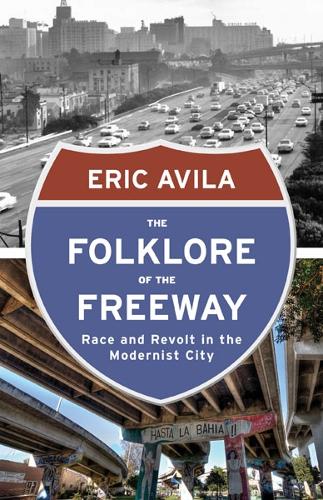
The Folklore of the Freeway: Race and Revolt in the Modernist City
(Paperback)
Publishing Details
The Folklore of the Freeway: Race and Revolt in the Modernist City
By (Author) Eric Avila
University of Minnesota Press
University of Minnesota Press
1st September 2014
United States
Classifications
General
Non Fiction
Architecture
Urban communities / city life
History of architecture
307.12160973
Physical Properties
Paperback
248
Width 152mm, Height 203mm, Spine 25mm
Description
When the interstate highway program connected America's cities, it also divided them, cutting through and devastating countless communitiesmany of them minority urban neighborhoods lacking the political and economic power to resist the construction. Within the context of the 1960s and 1970s, Eric Avila maps the creative strategies devised by urban communities to document and protest the damage that highways wrought.
Reviews
"Eric Avila's in-depth research and his sheer passionate commitment to the subject should make this one of the rare books that succeeds in replacing a widely-accepted narrative." Robert Fishman, University of Michigan
"A must-read cultural history of the 'invisible freeway revolts' through which city people of color have demanded social justice in the midst of aggressive urban reforms. Avila provides timely lessons for scholars and urban planners, pointing us to pay closer attention to the aesthetic and expressive forms of these protests, so necssary to achieve spatial justice in American cities." Arlene Davila, New York University
"The Folklore of the Freeway fuses art and public policy in a graceful narrative."KCET- LA Letters
"Each chapter is rich with details rarely considered, challenging readers to rethink their understanding of growth and development"CHOICE
"Avilas book is critically important for placing communities of color at the center of the narrative of anti-highway activism. In showing us that culture is affected by political activities like highway construction, he makes a welcome intervention into a historical topic that has often ignored culture and suggests areas for further research."American Studies Journal
"Avilas work is an important history of the modernist city and its discontents, transforming the narrative of the freeway revolt."Journal of American History
"Eric Avila . . . has written a thoughtful account of the impact of the construction of the American Interstate highway system on the urban barrios and ghettos it often traversed."Traditional Dwellings and Settlements Review
"The Folklore of the Freeway makes the invisible freeway revolt not only visible, but vivid, clear, and indisputable."Buildings & Settlements
"The Folklore of the Freeway offers a provocative account of the cultural history of the freeway in the American city, which interweaves past and present into a compelling narrative that challenges urban scholars to rethink the basic points of reference that have framed the storyline of the freeway revolt."Urban Studies
"Avilas book serves not only as a reminder of the role that race and political power played in the placement of urban highways, but as call to remake the highway system more justly."Planning Perspectives
Author Bio
Eric Avila is associate professor of history, Chicano studies, and urban planning at UCLA. He is the author of Popular Culture in the Age of White Flight: Fear and Fantasy in Suburban Los Angeles.
